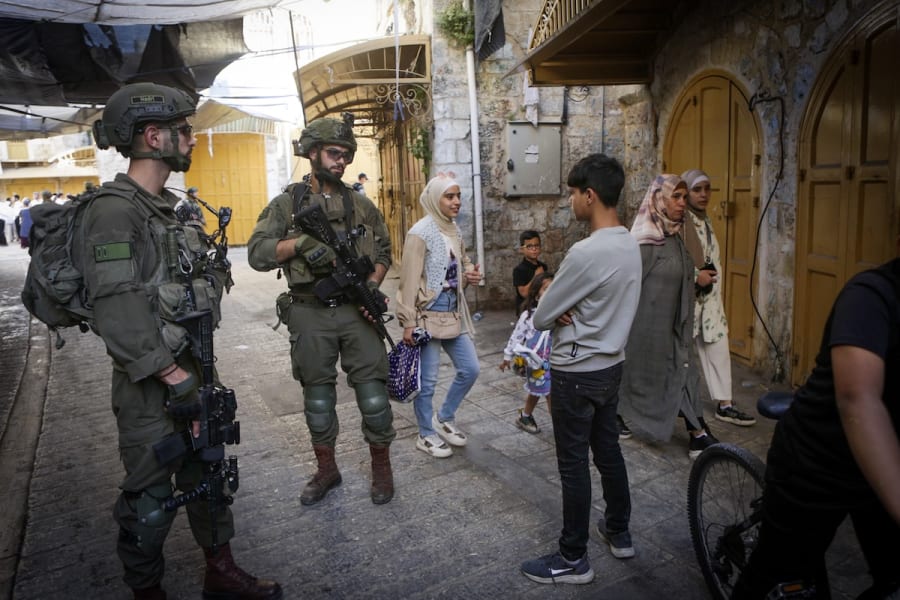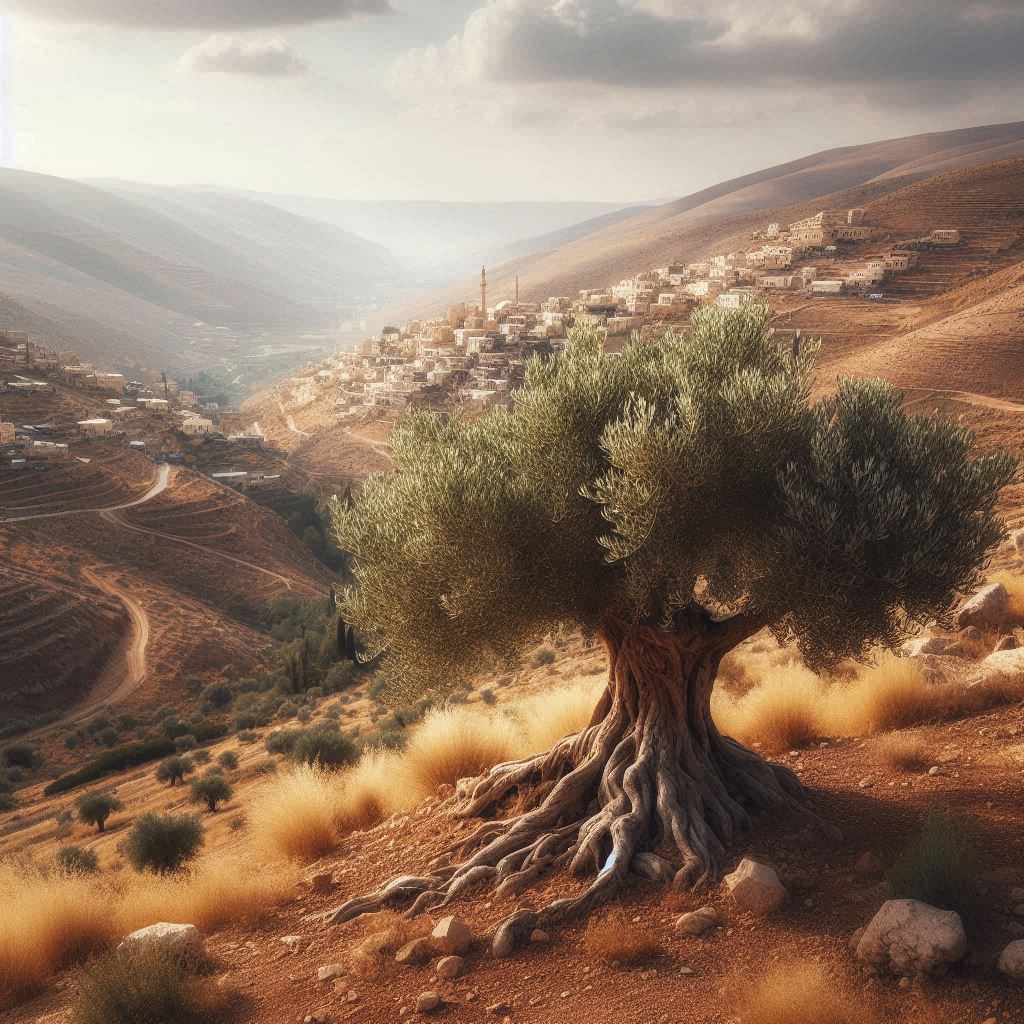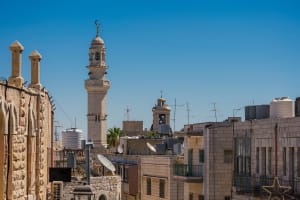Consequences of Hamas' attack against Israel for us Palestinians in the West Bank: Reflections from a Muslim-background believer in Jesus

The author of this article is a Palestinian Christian. I do not stand with any political group, nor do I support one group and hate or demonize another group. My only enemy is the devil. As believers, we fight against him. Our war is with Satan and his armies, not against men. If I have to die, I want to die for Christ, not for country, land, or people, only for Jesus.
In the local Arabic media, we often hear about the events of October 7 and the war carried out by Hamas. We also hear different points of view in the Palestinian media, between opponents and supporters of what Hamas did. We even hear different opinions on some Christian sites and among some Christian leaders who talk about politics and demand change.
While world opinion often leans in the direction of the Palestinian issue, some of these Christian leaders are talking about a ceasefire so much that the focus has been diverted from Christ’s message of salvation to a political message. The main concern of these leaders has become “apartheid,” the occupation, and stopping the war.
I do hope the war will end and peace will prevail in the region. I am not against anyone, and I respect every person and their right to express their own opinion, even if it differs from what I believe.
But as a follower of Jesus, I have a question: If Jesus were here today, what would He do, how would He act in this war?
We know from John 18:36-38 that Jesus’ kingdom is not from this world. His goal was not to establish a political kingdom, though many Jews in His day hoped for this. They wanted a political hero to save them from Rome.
As Christians, we need to remember this; our Lord is more concerned with saving souls than politics. Politics should never distract us from the more important task of bringing souls into the kingdom of Jesus by sharing the Gospel.
Jesus taught us to love our neighbor as ourselves in Matthew 22:37-39, and in the parable of the Good Samaritan in Luke 10:25-37 he explained that “neighbor” includes people we don’t like and who don’t like us.
In these difficult times, I want to tell you about my neighbor: He is every human who lives in sin, darkness, and far from the true God. My neighbor is the one who does not know Jesus and what Jesus did for him.
I also want to tell you about the situation of my Palestinian neighbors. It has become very difficult to provide a living in these difficult times due to the ongoing Gaza War. I want to tell you how difficult it has become for the Palestinians to earn a living after the start of the Gaza War.
From the day that Hamas decided to attack Israel, it was a black day for Palestinians. Many did not realize at that moment that the worst was still to come for Palestinians, even though we saw some videos on social media of some Palestinians rejoicing over the news on October 7 and ecstatic over what Hamas did. These are Hamas’ Islamist supporters. I do not hide that there is great support for Hamas among many Palestinians, whether in the West Bank or Gaza, but there is still a group among the Palestinians that is dissatisfied with Hamas and what they have done.
During this war, the number of this group has increased, but they don’t have a voice. If they speak or express their opinion, they will be persecuted and accused of treason.
Hamas has never cared about Palestinians, and what they did had a very big impact on all sectors of Palestinian society.
For example, Bethlehem is considered a first-class tourist city, which relies heavily on tourism for its economy, with hotels, restaurants, and souvenir stores employing many in the tourism sector.
All this was completely damaged by the events of October 7. Since then, owners of these businesses had to fire their employees because tourism stopped. These employees have become jobless, and this situation has only increased. The unemployment rate in the city limited purchasing power, which, in turn, affected all other shops in the territories, so other shops also began to furlough employees and close their doors.
Palestinian workers employed in Israel stopped working, due to the decision of the Israeli government to restrict entry. As a result, unemployment increased further. A large percentage of Palestinians in the West Bank were working in Israel and depended on work in Israel to support their families. Approximately 178,000 Palestinians or more were working in Israel before the suspension of permits after October 7, 2023.
This affects not just the workers, but their families, whose livelihood also depended on work in Israel. They have been without work and without a salary for more than 8 months. These people cannot find work in the West Bank, because the economy was poor even before the war, and the unemployment rate is high in all the Palestinian Territories.
People have become unable to support their families, and the family in which there is one working member is in a much better condition than a family in which there is no one working. For example, there are families consisting of 5 unemployed individuals, the father and the children, and yet each of the children is married and has children. These people do not have any income, but they have obligations and needs that must be met every month, and they have been without work for 8 months.
Through visits made to homes and families in need of help, almost every home I visited has someone who works in Israel, in the tourism sector, or some other sector, who has not been able to work since October 7th.
When I asked them what do you hope for? They said, “We hope this war will end and we will return to our work in Israel or in tourism.”
Some said that the biggest mistake Hamas made was the attack on Israel on October 7th. “Because of this mistake,” they said, “we have become without work and hope, and we are unable to provide daily food.”
Some described how businesses or projects were ruined because of the war.
In my own neighborhood, in every house, there are unemployed people who were working in Israel and lost their jobs because of October 7. They have become unable to provide the simplest things for their family, such as food and drink.
One of the things that surprised me most were posts on social media supporting October 7 and asking Palestinians not to go to work in Israel, even if Israel allowed them to return, because the goal was to harm, influence, or destroy the economy in Israel!
The posts say that every person who goes to work is a traitor to the homeland, but what is being destroyed is the economy of the Palestinians, more than the economy of Israel.
When I asked some people in the neighborhood what they thought about these posts, they said, “We will go work. They [Hamas] don’t provide us anything to meet the needs of our family. We have been without work, without a salary, since October 7, and no one asked about us, and these posts will not feed us bread. They only brought us destruction, and the only people who care about us are believers in Jesus.”
While walking in the streets, I often heard people talking about the difficulty of the economic situation for them and their families. As the war is prolonged, people complain more, the situation gets worse, and it becomes difficult for the Palestinians to earn a living.
The family that had saved some money before the war now spends this money. There are many obligations that must be secured every month, and without the ability to obtain any income since October 7, women have begun selling special heirlooms, including dowry gold, in order to help meet some of these financial obligations for the family.
It has become difficult to find any job in the cities, even one with a very low wage.
As people began to think about how to get a job or a source of livelihood from which they could get even a little bit to meet the family’s needs, we began to see people opening stalls on the sidewalks, or in the streets to sell drinks such as coffee, tea, vegetables, and light meals such as grilled meats.
There is more than one stall on any one street, and you may find these stalls selling the same things, due to the lack of options available. There is a glimmer of hope for them that they will receive some income, even if only a little, to meet some of the family’s needs. The people are desperate, to the point that some of them are begging people walking on the sidewalks to buy from them.
Even the percentage of children working under 18 has increased. You can find them at traffic lights or in public places, begging people to give them some money or to buy simple things from them such as tissues, gum, coffee, or bottles of water.
Pray for Palestinians, that they may come to know Jesus, the God of hope who gives hope without ceasing. Since I was born in this country, I have been hearing them talk about politics and the Occupation in schools and universities. I have not seen anything change for the better, but things are getting worse.
In all this time, no one told me about the God of hope, until a foreigner came and told me about Jesus! Because he followed the teachings of the Gospel as stated in Romans 10:14-15, “How, then, can they call on the one they have not believed in? And how can they believe in the one of whom they have not heard? And how can they hear without someone preaching to them?”
My life changed forever because, through faith in the God of hope, I obtained salvation and the guarantee of eternal life, which I could not obtain even if our political freedom reached up to the sky.
Please pray for Palestinians, so that they also may recognize the God of hope, the Lord Jesus and believe on Him.

Abdel-massih (Servant of the Messiah) grew up in the West Bank in a Muslim family before finding Jesus and becoming a disciple. He has been a follower of Jesus for several years. Abdel-massih is not his real name, as revealing his identity at this time would be dangerous to himself and his family.
You might also like to read this:















